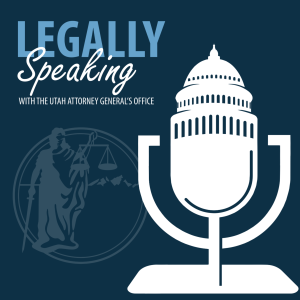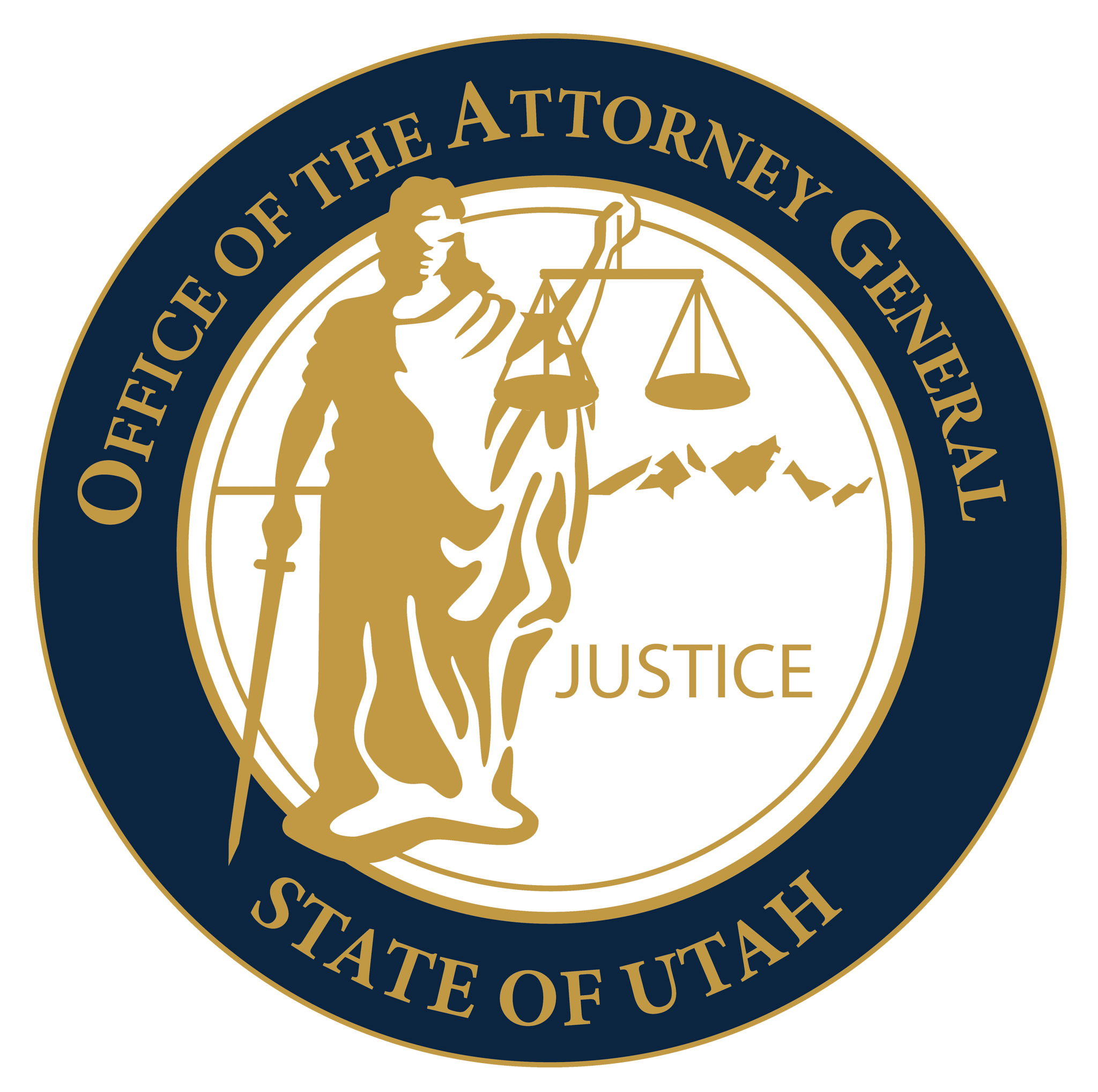Episodes

Friday Aug 23, 2024
Update on Utah's Opioid Settlements
Friday Aug 23, 2024
Friday Aug 23, 2024
As the Opioid problem continues to plague our state, a lot of people are curious about how much money the various settlements have brought to Utah. But the reality is that Utah’s Opioid Settlements are best described as works in progress.
Utah has received money from various sources: pharmaceutical manufacturers, distributors, pharmacies and others. But there is no bottom-line amount to report, since there are important legal actions still pending.
Here is the picture so far: Settlements that have been finalized will return about $495 million to be divided between the state and the counties. ($252 will come to the state, while about $242 million will go to the counties.) Payments will come over different timeframes ranging from immediate payment to payments over up to 17 years. As of August, 2024, the state has actually received about $69 million, while the counties have received about $59 million.
The settlements are important to our state, since the opioid crisis is still taking an unprecedented toll on families and is ruining lives as the problem evolves.
On this edition of Legally Speaking, we’re getting perspective from our top attorney over the Opioid settlements: Kevin McLean, Assistant Attorney General in the White Collar and Commercial Enforcement Division of our office.

Friday Aug 16, 2024
The AG's Office Government Records Access and Management Act Process
Friday Aug 16, 2024
Friday Aug 16, 2024
The Utah Attorney General’s Office handles thousands of requests for public records every year. The Government Records Access and Management Act (GRAMA) is the way they can get it.
Typically, it is a request from an individual who has a legal interest in a case, or a reporter who requests records in order to complete a story. But not all the documents our office generates are available to the public—they’re specifically not public, due to confidentiality or privacy concerns.
The GRAMA process exists in order for our office to have a process to handle requests with care. Today, the Legally Speaking guest is Lonny Pearson, the GRAMA Coordinator.

Thursday Aug 01, 2024
BLM Public Lands Rule Sparks NEPA Lawsuit from Utah and Wyoming
Thursday Aug 01, 2024
Thursday Aug 01, 2024
Utah and Wyoming teamed up to sue the BLM for skipping a step in the process before they imposed a new rule that significantly impacts land management and restricts your use of millions of acres of federal land.
The BLM Rule restricts access in the interest of conservation but Utah and Wyoming are fighting back saying the new rule was put into place illegally. The States say the BLM Rule doesn't comply with the National Environmental Policy Act (NEPA), which requires the study of the environmental effects of new rules on federal land.
The Utah Attorney General’s Office is on top of this lawsuit saying the BLM exceeded its authority—limiting access to $245 million acres nationwide of federal public land, including $22.8 million acres here in Utah.
In this episode, we're speaking with Jason Deforest, an assistant attorney general in our office, who is overseeing this lawsuit.

Wednesday Jul 17, 2024
The Taberon Honie Death Sentence Case
Wednesday Jul 17, 2024
Wednesday Jul 17, 2024
In this edition of Legally Speaking, we examine the legal issues surrounding Taberon Honie’s death sentence, which is set to be carried out August 8, 2024.
Honie has been on Utah’s Death Row for 25 years. In June 2024, he made one last plea for clemency with the Board of Pardons and Parole, but other than that, his death warrant has been signed and his execution set for August 8. We’ll update the case as of July 17, 2024.
Background on this case: In 1999, Honie was convicted of the extremely violent murder of his girlfriend’s mother, Claudia Benn, in Cedar City. Benn was viciously and repeatedly stabbed, to the point of mutilation. Honie was arrested at the scene, confessing: “I stabbed her. I killed her with a knife.” Benn’s three granddaughters were present during the murder, all had blood on them, and a four-year-old was sexually assaulted.
Graphic details set the stage for our conversation with Daniel Boyer, Assistant Solicitor General in the AG’s Office Criminal Appeals Division.

Friday Jul 05, 2024
Friday Jul 05, 2024
Utah State law protects Utahns from excess pollution, unsafe conditions and more—and the Attorney General’s Office helps enforce those rules.
When it comes to preserving safe, healthy air, water and land, the Division of Environmental Quality has a big job. Most of the time, any violation of the rules is caught, noted, and remedied quickly. But when it keeps happening, that’s when the legal process starts and the AG’s office gets involved.
The process is an interesting one, and we learn more about it in our Legally Speaking conversation with Marina Thomas, Director of our Environmental Section.
Marina oversees air quality specifically, but the process is the same for water, radiation control, drinking water and hazardous waste.

Tuesday Jul 02, 2024
AGO Victory: Limits to Extreme Emotional Defense
Tuesday Jul 02, 2024
Tuesday Jul 02, 2024
In this Legally Speaking edition, we speak with Assistant Solicitor General Karen Klucznik about the recent State v. Smith Appeals Court victory.
The Utah Court of Appeals recently ruled in favor of the Utah Attorney General’s Office, and on behalf of victims, by setting limits to the widely-used Extreme Emotional Distress defense in murder cases.
It’s taken more than a decade for this case to work through the Utah legal process. With the help of recent legislation, new standards apply about when a defendant can say in court that they 'lost control' and shouldn't face the maximum penalty because they reacted violently to a situation.
This case centers on Daniel Smith, a husband who shot his wife seven times - 25 minutes after she told him she wanted a divorce and was leaving him. He said he was traumatized and shot his wife in an emotional haze. So, he wanted to claim an extreme emotional distress defense that would have lowered a murder conviction to manslaughter. Based on the case facts, the trial court denied the defense. The Utah Court of Appeals recently affirmed the trial court’s ruling and Smith’s murder conviction.
The bottom line is, because of the statutory changes to the EED defense and the court of appeals’ ruling, defendants who kill their intimate partners when their partners try to leave may find they are less able to use the extreme emotional defense as a mitigating factor, due to the timeline, level of violence, and other factors.
Assistant SG Klucznik has argued extreme emotional distress cases for many years and joins us now to examine the implications of the Appeals Court ruling.

Thursday Jun 13, 2024
Children's Justice Centers: An Inside Look - Part 2
Thursday Jun 13, 2024
Thursday Jun 13, 2024
Utah’s Children’s Justice Centers are in nearly every county in the state and are a safe place for abused children to talk about and provide evidence regarding what they’ve been through. These CJCs look like residential homes to provide a comfortable, secure environment for interviewing young victims of violent crime.
The Utah Attorney General’s Office oversees the state’s CJCs, designed as important “safe houses.” There, specially trained investigators help children talk about what they’ve been through as part of an ongoing investigation. What they say can be used in court. It’s a compassionate way to deal with the dispassionate prosecution of a criminal case.
In Part 1, we spoke to the CJC's Deputy Director, Heather Stewart. In this Legally Speaking episode, Part 2, we hear from Matthew Janzen from the Davis County Attorney’s Office about the CJC's importance there.

Tuesday Jun 04, 2024
Children's Justice Centers: An Inside Look - Part 1
Tuesday Jun 04, 2024
Tuesday Jun 04, 2024
Utah’s Children’s Justice Centers are in nearly every county in the state and are a safe place for abused children to talk about and provide evidence regarding what they’ve been through. These CJCs look like residential homes to provide a comfortable, secure environment for interviewing young victims of violent crime.
The Utah Attorney General’s Office oversees the state’s CJCs, designed as important “safe houses.” There, specially trained investigators help children talk about what they’ve been through as part of an ongoing investigation. What they say can be used in court.
It’s a compassionate way to deal with the dispassionate prosecution of a criminal case. In this special two-part Legally Speaking, we first speak to the CJC’s Deputy Director, Heather Stewart, who loves to educate people about it. In part two, we will hear from Matthew Janzen from the Davis County Attorney’s Office about the CJC's importance there.

Legally Speaking
Welcome to Legally Speaking, a podcast for those who want quick and summarized information on important issues and cases the state is handling. Our format is meant to be easier to understand than a court document or technical argument. As Utah’s largest public law firm, we will address topics from a legal point of view—information you won’t get anywhere else.

